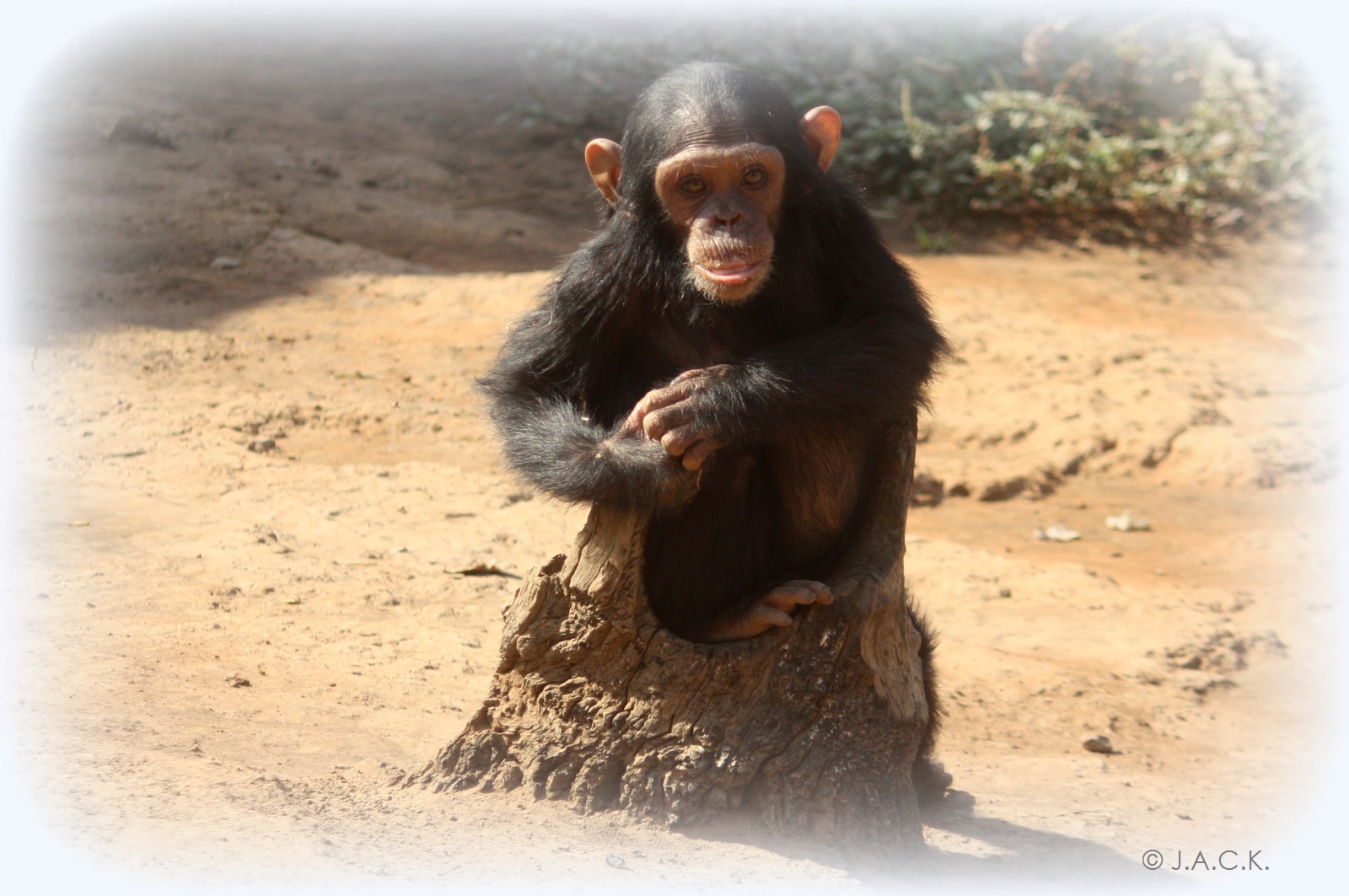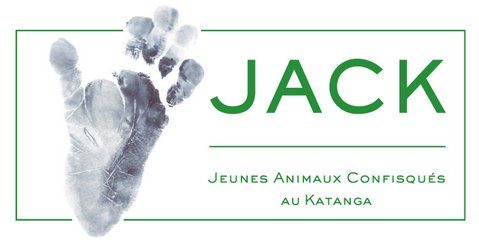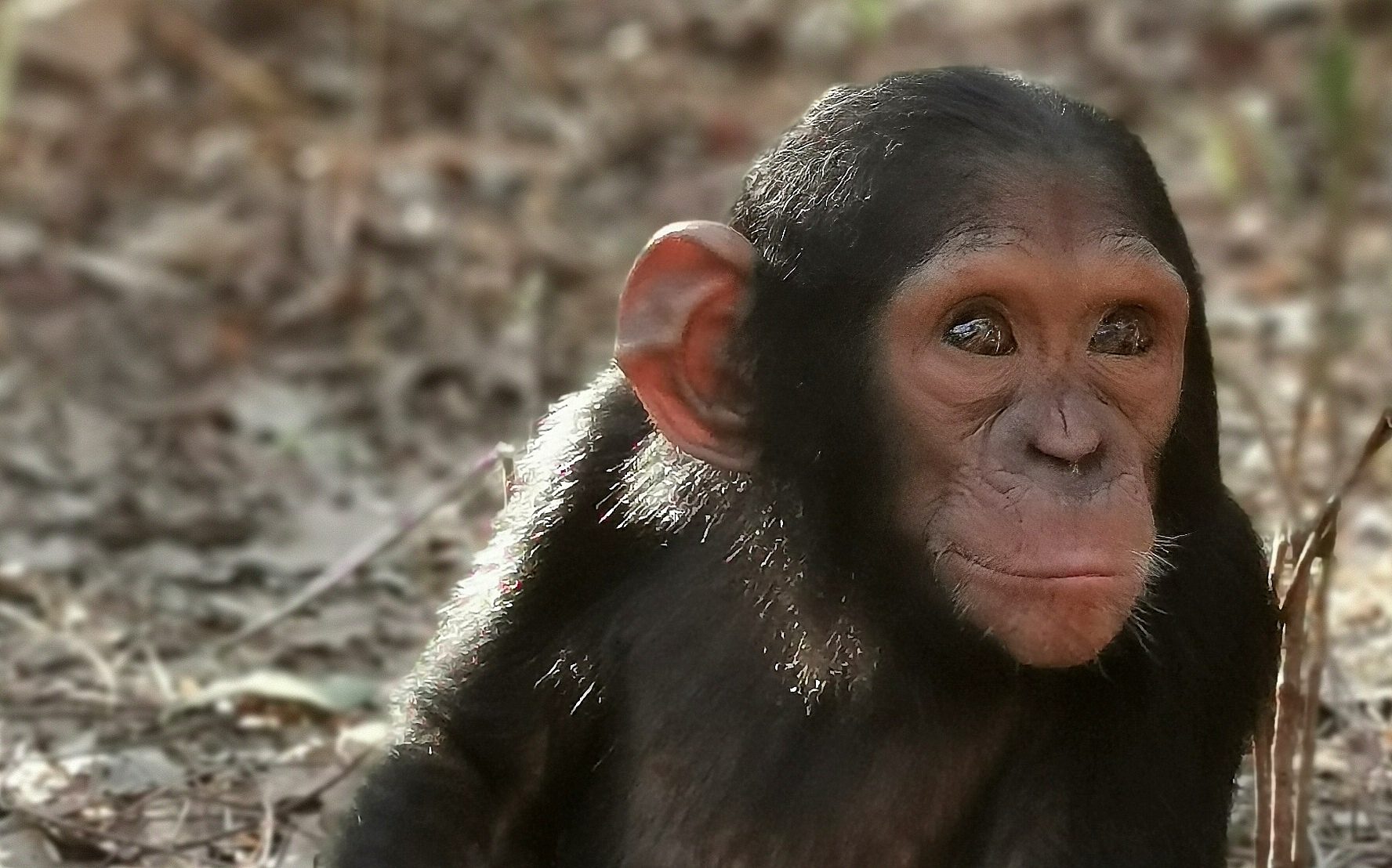The Democratic Republic of the Congo is home to a great variety of endangered wildlife. Yet, poaching, wildlife traficking and bushmeat are the threats it faces daily.
In 1960, there was an estimated one million chimpanzees in Africa. Today, hardly 172,000 to 300,00 are said to be left, and about 40% of this remaining population lives in the DRC.
Also, the Democratic Republic of Congo is the third country in the world with the highest diversity of primates and the first in Africa. Moreover, the DR Congo is among the four countries in the world (together with Brazil, Madagascar and Indonesia) to have 65% of all primate species.
Unfortunately, 2/3 of the primates living in these countries are facing extinction. Some endemic and fully protected monkey species are increasingly vulnerable and their populations are disappearing rapidly due to the bushmeat trade and the trafficking of exotic pets.
Today, it is clear that very few actions are taken in this central African country to protect them. Thousands of big and small primates are being poached, eaten and sold daily in the greatest silence. Many species are soon to become extinct if laws aren’t enforced ad if awareness is not advocated to stop the trade!
A SANCTUARY TO FACILITATE WILDLIFE CONFISCATIONS
Jeunes Animaux Confisqués au Katanga (J.A.C.K.) is a Congolese NGO which aims to put a stop to all that wildlife trade through law enforcement and by managing a rehabilitation center. It focuses on apes and primates mainly and, because of its partnership with the DRC Environment authorities (Ministry of the Environment & ICCN), confiscated primates are handed over to J.A.C.K. for rehabilitation and future release.
As already mentioned, most of the endemic primate species of the DRC are in danger. This is clearly the case of chimpanzees (Pan troglodytes), the golden-bellied mangabeys (Cercocebus chrysogaster), the lesula monkeys (Cercopithecus lomamiensis)! These creatures are all facing extinction although protected by CITES.
If J.A.C.K. hadn’t been created, the authrorities wouldn’t have had the safe place where to keep all these rescued and confiscated primates abused by man. Where would they all have gone?
EDUCATION & AWARENESS
As the human population increases, more resources are needed from ecosystems to sustain human activities. Education in biodiversity conservation is an important factor in shaping peoples’ knowledge of and attitudes towards biodiversity conservation.
Therefore, J.A.C.K. has its own eduction centre to educate on the several threats our DRC primates are facing on a daily basis and to make vistors understand how serious the situation is and what impact they can have when protecting their patrimony.
The education centre is made of different education buildings to welcome young and old visitors. J.A.C.K. thus works with the young generations, but it also and mainly has to target individuals who either pose a threat to apes now (tourists, expatriates who are likely to purchase a primate pet) and/or who are in the position to help control threats faced by wild apes in the DRC (soldiers, government authorities, wildlife officials). Chimpanzees, for example, are said to have about 20 years left in the wild. This means that they can’t wait until today’s young generations grow into conservation advocates.
LAW ENFORCEMENT
Since the early beginning of its creation, J.A.C.K. has been working on law enforcement with the local environmental authorities of Upper-Katanga Province. As a result of this joint efforst no more chimpanzees are to be seen on sale nor illegaly detained in this part of the country. The city of Lubumbashi used to be a hub in ape trafficking with the Zambian border only one hour away – all that trade has now been stopped!
But the Congolese NGO goes higher up into the country and has partnered with another Congolese NGO named APPACOL-PRN which is located in Lodja, a town in the Sankuru Province located in an unprotected area between the Salonga National Park and the Lomami National Park.
In an effort to put a stop to the increase in bushmeat trafficking and the illegal demand for exotic pets in Central Africa, the J.A.C.K. has organized a coalition of different NGOs to address this issue. Congolese non-governmental organizations, the DRC wildlife authorities (ICCN) and the PAN AFRICAN SANCTUARY ALLIANCE (PASA) are part of this dynamic.
This is how J.A.C.K. has been partnering with APPACOL-PRN since May 2022. Without this agreement, many primates would still be sold freely on the streets, even though their possession is illegal. Therefore, this partnership agreement applies and reinforces the laws of nature conservation in force in our country.
These joint efforts also lead to arrests and legal proceedings against offenders. The task of reinforcing the law is not an easy one, and DR Congo remains a complex country. However, J.A.C.K. and APPACOL-PRN are leading some victories in this area, including the recent judgment of a pangolin scale trafficker who was arrested and put in prison for two years. This action was not possible without the help of the TIKKI HYWOOD FOUNDATION.
Finally, through this agreement, the confiscated/recovered primates have the chance to be transferred and rehabilitated at the Lubumbashi sanctuary with the hope of being released back to the wild. From May 2022 to May 2023, thanks to this partnership and the generous support of J.A.C.K. great donors, sponsors and partners, 45 primates have been confiscated, rescued and transferred to the Lubumbashi-based sanctuary for a better life.


